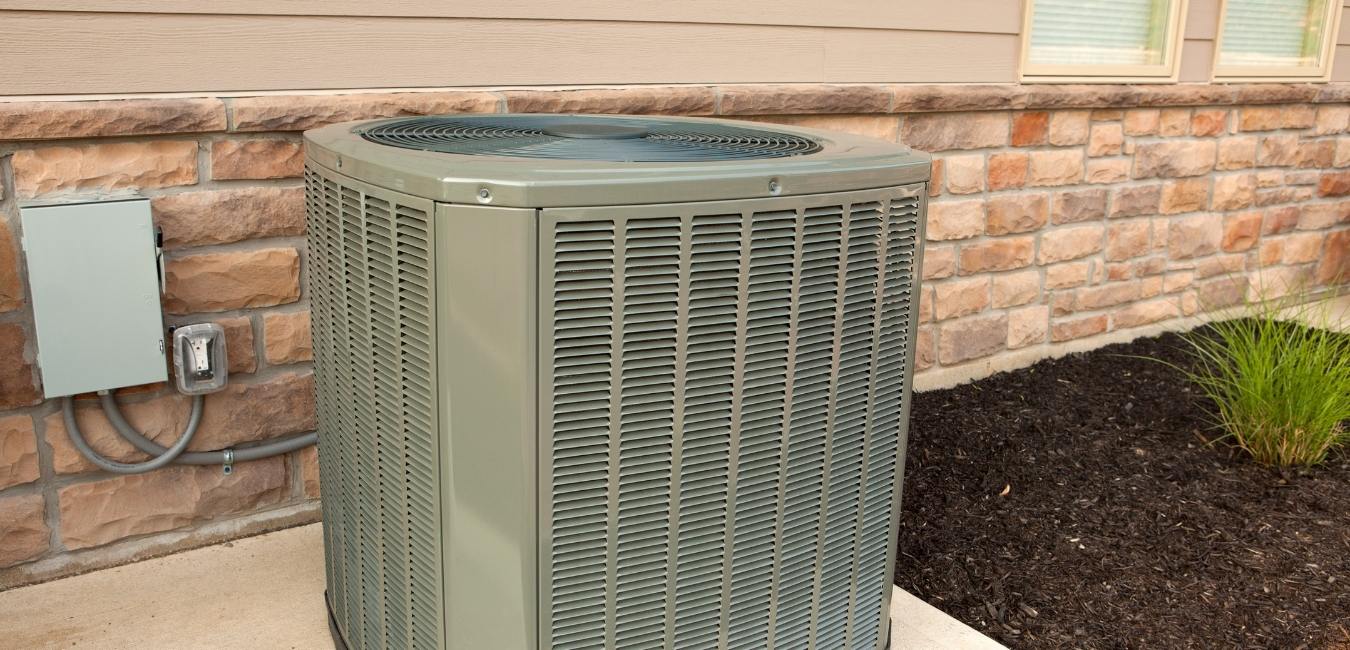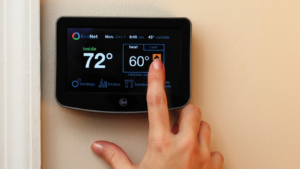
When the summer arrives in Michigan, the heat isn’t always the only thing residents have to deal with. Much of the time, the high temperatures are made particularly uncomfortable due to the amount of moisture in the air. While dry heat is typically pretty tolerable, muggy heat tends to make you feel sweaty, sticky, and gross. High humidity levels can also increase the risk of mold or mildew growth, leave stains on the walls and ceilings, and create unpleasant musty odors. For these reasons, many homeowners are frequently looking for ways to keep their household humidity levels under control. And since many people already have an air conditioner in their home, it’s a common practice to turn to the household cooling system for dehumidification.

In addition to cooling you down, your air conditioner can technically contribute to dehumidifying your home. However, it’s important to keep in mind that the system’s primary function is simply to remove heat from the air, and controlling humidity is only a byproduct. As it happens, part of the heat-removing process also involves removing the moisture from the air. After that water vapor has been pulled from the air, it condenses on the air conditioner’s condenser coils and eventually gets drained out of your home. As a result, the humidity levels in the house are gradually reduced when your AC unit is running.
So, it’s best to keep your expectations in check when it comes to your air conditioner dehumidifying your home. It can certainly help the cause, but if you’re dealing with a significant humidity issue, your AC unit alone may not be sufficient to keep it in check. If it seems like your air conditioner isn’t cutting it, there are other routes you can take to remove more of the moisture from your home’s indoor air.
Most air conditioners, when running properly, will help to dehumidify your home. However, you may notice that running your cooling system doesn’t seem to be having any effect on the amount of moisture in the air. This is a common occurrence, and there are a number of reasons why it might be happening.
One of the most frequent causes of an AC unit failing to dehumidify is the unit being oversized for the home. You may expect that an oversized air conditioner would actually be more effective at dehumidifying your dwelling, but in reality, that isn’t the case. When an AC unit’s cooling capacity exceeds the needs of the home, it will regularly work harder than it truly needs to. That results in the system short-cycling, and when it’s short-cycling, it will continue to remove moisture from the air, but that water won’t have time to properly drain. As a result, the moisture will end up being reintroduced to your home’s air, and the humidity level stays put. You can avoid this issue by having reliable HVAC professionals assist you in finding an AC unit that’s sized properly for your household.
Having your household thermostat set to “on” can create a similar issue. When it’s on that setting, your home’s air conditioner will constantly have its internal fan running, even when the AC unit isn’t cycling. And when the fan is always running, the moisture that gets pulled from the air gets blown right back into your home. So, if it doesn’t seem like your cooling system is effectively dehumidifying your home, it’s always a good idea to check the thermostat setting. If it’s set to “on,” switch it to “auto” instead. That way, the fan will only be blowing when your air conditioner is running.
These are a few of the other reasons why your AC unit may be struggling to dehumidify your household:
When you’re dealing with high levels of humidity in your home, one effective option is to invest in a dehumidifier. These systems are extremely common in places like Georgia and Florida, which are known for the extreme amounts of moisture in the air. However, regardless of where you live, there are a variety of reasons you may encounter unusually high humidity. And if your air conditioner isn’t effectively handling it, then a dehumidifier could be a worthwhile purchase.
Dehumidifiers, unlike air conditioners, have the sole purpose of removing moisture from the air. There are a variety of types available, and they’re typically considered to be the most reliable way to control indoor humidity. With a modern dehumidifier, you’ll be able to choose the exact humidity level that you want in your household, and it will bring it to that level and maintain it. That way, you’ll not only avoid the discomfort and negative effects of heavy, damp air, but you’ll also prevent your home’s air from becoming overly dry. Your living space will be at its most comfortable if you’re able to find a happy medium, and installing a dehumidifier is an excellent way to achieve that.
Air conditioners and dehumidifiers are far from the only two ways that you can reduce the amount of moisture in your home’s air. There are quite a few methods that you can try, and the majority of them are quite easy to implement.
When it comes down to it, your AC unit can, in fact, dehumidify your home. And as long as the humidity levels aren’t too outrageous, it can probably do a good enough job to keep you comfortable and prevent any moisture-related problems. However, if you have a major humidity issue, you typically shouldn’t count on your air conditioner to solve it for you. It should be able to help, but additional measures might also be needed. For assistance, give the Indoor Air Quality specialists at Flo-Aire a call today (734) 285-1809.
Locally owned and operated in Southgate, MI since 1955, Flo-Aire Heating, Cooling & Electrical is one of the top heating & cooling companies in Southeast Michigan. Flo-Aire provides residential, commercial and industrial HVAC services throughout all of Metro Detroit.


